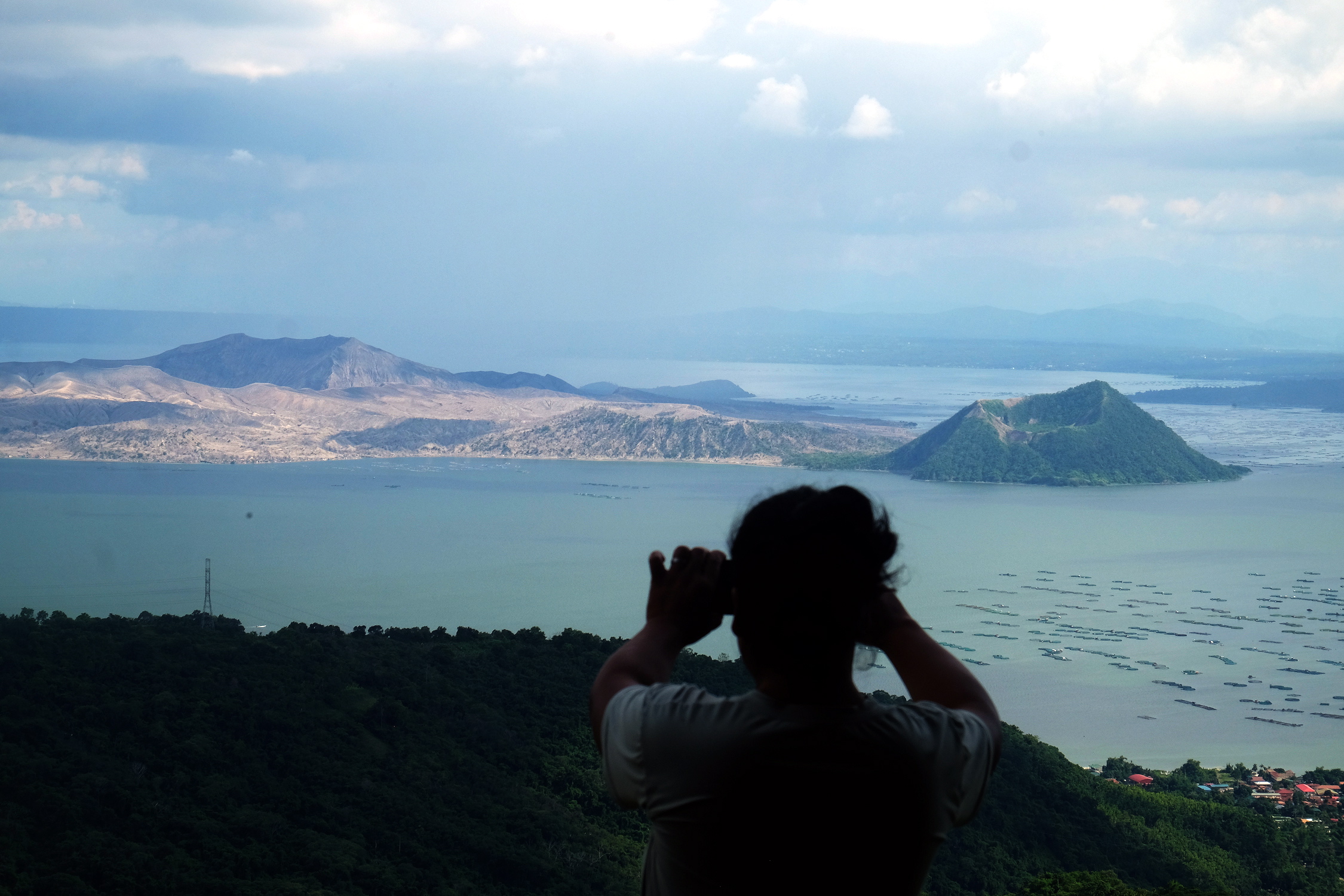Taal Volcano emits 3,300 MT sulfur dioxide in latest explosion

CONTINUOUSMONITORING While Taal Volcano appears to have calmed down in recent weeks, government volcanologists continue to monitor its activity as hazards, like volcanic smog or
vog, may affect surrounding communities in Batangas and the rest of Calabarzon region and Metro Manila. —NIÑO JESUS ORBETA
LUCENA CITY — Taal Volcano in Batangas province had one phreatic or steam-driven eruption on Sunday, Aug. 4, according to the Philippine Institute of Volcanology and Seismology (Phivolcs).
The eruption lasted three minutes, Phivolcs said in its morning bulletin on Monday.
On Friday, Aug. 2, Taal Volcano recorded three phreatic eruptions at 7:15, 7:19, and 7:23 in the evening, each lasting one minute.
The volcano had one phreatic eruption that lasted five minutes the day before.
A phreatic eruption is a “steam-driven explosion that occurs when water beneath the ground or on the surface is heated by magma, lava, hot rocks, or new volcanic deposits (for example, tephra and pyroclastic-flow deposits),” Phivolcs defines.
However, the unrest is unlikely to progress into a magmatic eruption based on the background levels of volcanic earthquake activity and the detected ground deformation, Phivolcs emphasized.
READ: Phivolcs logs 1 phreatic eruption in Taal Volcano
In its latest update, Phivolcs recorded the emission of 3,309 metric tons (MT) of sulfur dioxide (SO2) from Taal’s main crater, which rose 1,500 meters high above Taal Volcano Island (TVI), locally known as “Pulo,” which sits in the middle of Taal Lake.
The Phivolcs classified the latest spewing activity of the volcano as “voluminous emission.”
State volcanologists also noted the presence of “vog” during the latest monitoring period.
Vog is composed of SO2 gas and could irritate the eyes, nose, and throat. People with respiratory conditions and pregnant women are at greater risk.
READ: Taal Volcano logs 3 earthquakes, 1 tremor in 24 hours
Authorities reminded the public that alert level 1 prevails over Taal Volcano, which means that it is still in abnormal condition and should not be interpreted to have ceased unrest nor the threat of eruptive activity.
The Phivolcs said at alert level 1, sudden phreatic explosions, volcanic earthquakes, minor ashfall, and lethal accumulations or expulsions of volcanic gas could occur and threaten areas within TVI.
The agency also cautioned the public against going to Pulo and prohibited aircraft from flying near the crater.
TVI has been off-limits to former Pulo inhabitants after the volcano’s major eruption in January 2020.